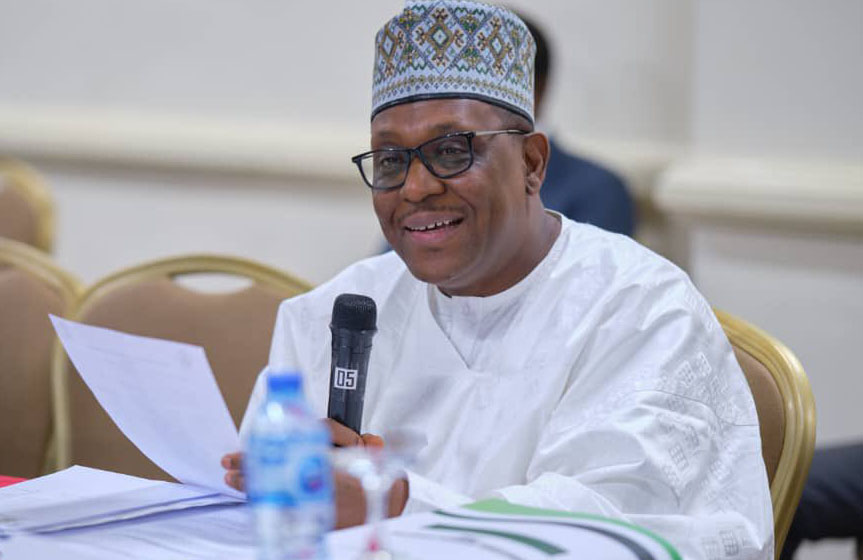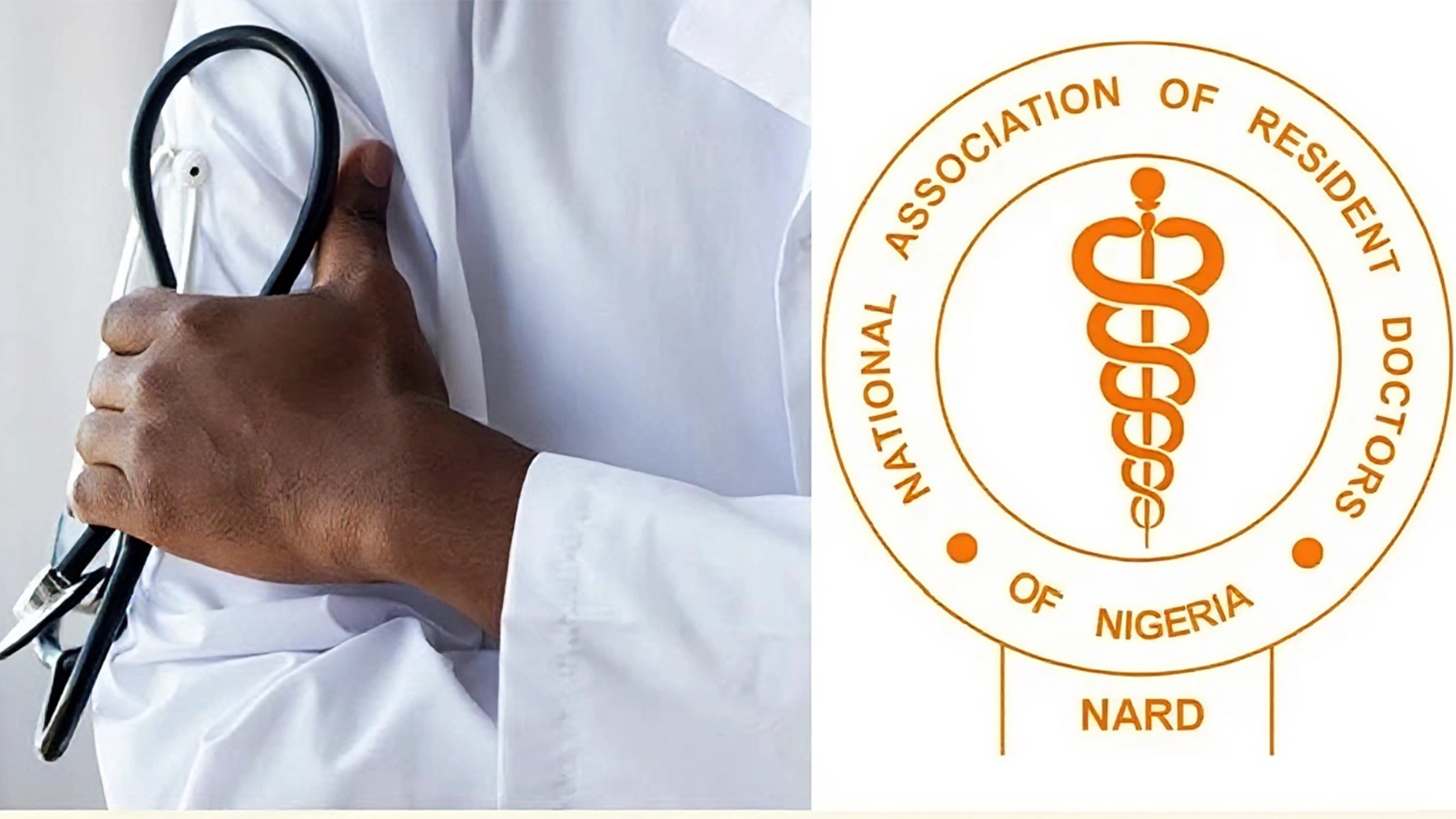
The Federal Government has received about $3 billion in external funding for the National Health Sector Renewal Investment Initiative (NHSRII), and significant domestic investments are projected over four years.
The government has also signed an agreement with the 36 state governments and the Federal Capital Territory (FCT) to rebuild Nigeria’s health system into one that is equitable, resilient, and accessible to all.
Guided by the principle of “one vision—one conversation, one budget, one report,” the NHSRII provides a unified framework to eliminate inefficiencies, reduce fragmentation, and align efforts across all levels of government, private sector, and development partners.
National Coordinator, NHSRII / Sector Wide Approach (SWAp), Muntaqa Umar-Sadiq, who disclosed this while speaking on “Health for All: One Year of Transformative Progress in Nigeria’s Health Sector”, said that the impact of the framework is evident in the revitalisation of the Primary Healthcare Centres.
More than 2,100 PHCs have been upgraded to full functionality, with another 3,000 in progress and on track to be fully functional by the end of 2025.
He said the sector-wide approach has established Nigeria as a leader in health systems accountability across Africa, adding that no Nigerian will need to travel more than five kilometres to access care.
Umar-sadiq said that N46 billion of the Direct Financing Facility was disbursed to more than 8,000 facilities in 2024 through the revamped Basic Health Care Provision Fund (BHCPF) and PHCs now deliver essential services, from immunizations to maternal and child healthcare.
He noted that the Sector-Wide Approach (SWAp) is critical to achieving these results, with tools like Joint Annual Reviews (JARs), Annual Operational Plans (AOPs), and State Dialogue Mechanisms driving accountability, alignment, and efficient resource use.
To make these reforms sustainable, Umar-Sadiq stated that robust financing has been a cornerstone of this administration’s strategy stressing that in 2023, the health sector budget increased by an unprecedented 41.5 per cent, rising from ₦826.9 billion in 2022 to ₦1.17 trillion.
He said the investment has revitalised PHCs, expanded health insurance coverage, and strengthened health security. Some tools were deployed to improve transparency and bolster public trust in the health system.
NHSRII has also strengthened the country’s vaccination efforts to combat emerging and re-emerging diseases.
Also, enhanced immunization campaigns led to significant progress in stopping outbreaks such as diphtheria. “These strides exemplify the power of collaboration between government, development partners and communities to protect public health.”
Umar-Sadiq lamented that financial protection for families remains a pressing challenge, as health insurance coverage under the National Health Insurance Authority (NHIA) has grown by over two million enrollees in the last one year, bringing the total number of enrollees to 19.2 million.
He stated that the upcoming Medical Relief Programme in 2024 will provide targeted subsidies for essential services, ensuring that financial hardship is no longer a barrier to care.
Umar-Sadiq observed that the health workforce is the foundation of all the reforms, adding that over 53,000 frontline workers have been retrained in the past year, out of a target of 120,000 within three years.
The coordinator said that community health workers are better equipped to deliver immunizations, enlighten families, and provide referrals.
He emphasised adopting the Health Workforce Migration Policy to reflect a balanced approach to addressing brain drain while strengthening domestic capacity.
“We have focused towards unlocking the economic potential of the health sector through the Presidential Initiative for Unlocking the Healthcare Value Chain (PVAC), over $1 billion in investments have been catalysed, with 42 business cases finalised for the local production of pharmaceuticals and medical devices.
‘Partnerships with global firms are fostering innovation and technology transfer, making Nigeria a hub for healthcare manufacturing and resilience.”
Umar-Sadiq said PVAC has also finalised 74 business cases to boost local production of pharmaceuticals and medical devices, supported by an Executive Order, as the incentives empower local manufacturers and strengthen Nigeria’s healthcare ecosystem.
He said the challenges of maternal and newborn health have long been a source of pain for families across Nigeria, stressing that the Maternal Mortality Reduction Innovation Initiative (MAMII) was launched to change this, initially targeting 172 highest-burden local councils.
“As part of the expanded National Health Insurance Authority (NHIA) package, prequalified poor and vulnerable women now have access to free cesarean sections at accredited facilities, addressing obstetric complications that previously led to tragic outcomes. This initiative is supported by the National Emergency Medical Service and Ambulance System (NEMSAS), which ensures emergency transport for those in critical need.”
“In addition to saving mothers and children, Nigeria is intensifying its fight against infectious diseases. The government has made significant investments in malaria prevention, treatment, and vaccination, aiming to eradicate a disease that continues to claim lives, especially among children under five.
“The recent receipt of over one million doses of the R21/Matrix-M malaria vaccine from The Vaccine Alliance, GAVI, and its rollout in high-burden states such as Kebbi and Bayelsa is a testament to this commitment.”
Umar-Sadiq highlighted other strategic collaborations with the World Health Organization (WHO), The Global Fund, the U.S. Government, and other partners that have helped increase efforts to end diseases like tuberculosis and HIV/AIDS. These initiatives reflect the government’s unwavering focus on improving health outcomes for all Nigerians
“Health security has also been prioritised, with Emergency Operations Centers (EOCs) now established in all geopolitical zones and enhanced genomic surveillance systems allowing for faster detection of diseases like diphtheria and monkeypox.
“The launch of the Nigeria Climate Change and Health Vulnerability Assessment Report has positioned Nigeria as a leader in integrating climate resilience into health systems, ensuring that we are prepared for the challenges of a changing world.”
“Significant progress has also been made in tertiary care, with six state-of-the-art cancer treatment centres being developed in partnership with the Nigeria Sovereign Investment Authority (NSIA). Two of these centres will open in May, providing much-needed oncology services and reducing the financial and emotional toll of medical tourism for Nigerian families,” he added.






